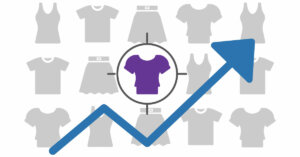Strengthening Customer Relationships with Personalization
By Arleen Atienza
June 14, 2021
Share
Online shopping grew an astounding 44% in 2020, and e-commerce websites are springing up everywhere. As consumers continue to opt for digital experiences, the number of businesses migrating online will likely keep growing in the years to come.
The thing about shops migrating online is that sometimes online shopping becomes a bland, uniform affair of clicking, searching, adding to cart, and checking out. You’ve seen one online retail shop, you’ve seen them all. And really, there’s nothing “wrong” with a set-up like this. The customer gets what they need. However, impersonal online shopping does not leave a lasting impact on your customers -- but giving them a relevant, personalized experience will.
While setting up a personalization program may seem daunting, it can be quite simple with the right data and technology. Plus, it is a critical piece in standing out from the competition in today’s digital-first world. According to Epsilon, 80% of consumers are more likely to purchase from a brand that provides a personalized experience. Effective personalization not only helps you win over new customers but also keeps them coming back.
How personalization builds customer relationships
As a customer, wouldn’t it be amazing to have a business that knows and caters to your needs without you having to repeatedly wade through the gamut of products that don’t interest you? It is akin to going into your favorite coffee shop and having your favorite barista know exactly what your usual coffee order is.
As a retailer, it is critical to foster a relationship with your customers to keep them coming back to your brand. To do this, you first need to understand your customers’ needs. You need to have a working knowledge of what your customers want, the trends they will likely follow, and the movement of customers in your industry.
This is where personalization comes in. Personalization means tailoring something to fit individual needs, styles, and wants. This will make your customers feel like royalty when you give them service that feels exclusive to them — and when customers feel that way about your customer service, they will keep coming back.
Tips on How to Personalize Your Website for Your Customers
Before we get into the different ways to personalize your website to cater to individual customers, let’s first establish how you can predict customer behavior. The key to anticipating a customer’s needs is understanding how they’ve previously interacted with your site. With SiteSpect, you can leverage rich behavioral and contextual data to see what pages a user previously visited, what browser they used, and much more. All of this data can be used to inform your segmentation and ensure customers are seeing a truly tailored experience.
Leverage customer feedback and reviews
While data will paint a picture of your customers, direct feedback gives you an even clearer look at their wants and needs. Adding short surveys to your site will allow you to get to know your customers better without being intrusive. Your customers will appreciate the opportunity to give feedback on their user experience as long as it’s not taking up too much of their time.
Start with quick one-question surveys and A/B test the language and survey format to optimize conversions. For customers who have already completed a purchase, the order confirmation page is a great place to include more in-depth surveys and learn about their overall purchase experience. Whether you try one of these types of surveys or both, on-site feedback is an invaluable tool in personalization.
Deliver relevant product recommendations
Personalized product recommendations help customers find what they’re looking for and just make shopping online easier. According to Accenture, 91% of consumers are more likely to shop with brands that offer relevant product recommendations. Not only will product recommendations introduce your customers to items that suit them perfectly, but they’ll also help your brand stand out from the competition.
Like any personalization campaign, product recommendations are only as good as the data behind them. For returning customers, it’s important to leverage as much data as you can from their previous visits to deliver the most relevant product recommendations possible. For new visitors, popular product recommendations are a great way to showcase your brand’s most frequently purchased items. As you begin to collect more data on both new and returning customers, you can continuously optimize your product recommendations and show your customers that you truly understand them.
Offer personalized customer support
Offering real-time, personalized customer support on your website is crucial for any ecommerce business. Whether it’s through a live chat, social media, or a phone call, customers need to be able to reach you quickly should they encounter any questions or problems while shopping. According to HubSpot Research, 90% of customers consider an immediate response as important or very important when they have a customer service question.
Whether your live chat is with a customer service agent or a chatbot, they should work to make the chat experience as personalized as possible. A simple way to do this is to have the customer fill out a brief form at the start of the chat with their name and a brief description of their issue. When helping customers over the phone, an agent should always ask for the customer’s name to add a personal touch to the conversation. These are easy but effective ways to build trust with your customers and create a personalized customer service experience.
Takeaway
Building customer relationships is more important than ever in ecommerce, and personalization is the perfect tool to create long-lasting connections.
To learn more about SiteSpect, visit our website.
Share
Suggested Posts
Subscribe to our blog:





